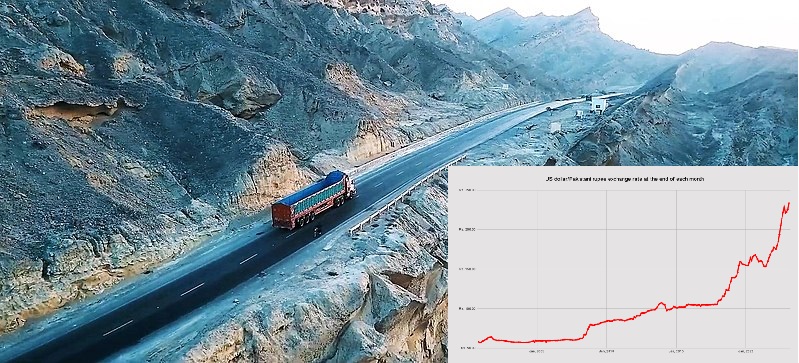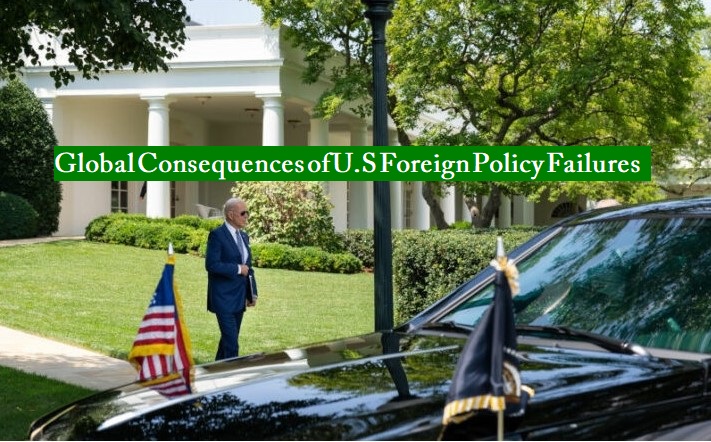
Impact of Remittances on Pakistan’s Economy and Rising Security Challenges in Balochistan

The recent report by the Asian Development Bank has highlighted remittances as a key pillar of Pakistan's economy. An increase in remittances can boost the country's production capacity and growth rate. Remittances, which account for 10% of the GDP, are a stable source of national income. Even during the COVID-19 pandemic, when exports were expected to decline, remittances increased. In the 2020 financial year, exports were $21 billion, $2 billion less than the previous year, but remittances reached $26 billion, $4 billion more than the previous year. In the financial year ending this June, exports were $30.64 billion, and remittances stood at $30.30 billion, making both sources of foreign exchange nearly equal.
At a time when the country desperately needs to increase its foreign exchange reserves, there should be a race between remittances and exports to see which grows more in the next year or two. To achieve this, it's important to focus not only on increasing exports but also on boosting remittances.
For this, it’s essential to provide legal and easy channels for transferring money and to help the overseas workforce develop skills and secure jobs. While the government focuses on exports year-round by offering various facilities and incentives, using diplomatic channels, and fostering relations to promote exports, it should also give equal importance to increasing the export of manpower.
This could open doors for skilled Pakistani workers globally, especially in the Gulf Arab countries, which are key markets for Pakistani labor and a major source of remittances.
At a time when the country’s internal and external debt has grown to an alarming level and a large portion of national income is spent on debt interest payments each year, increasing remittances should be a top government priority to boost national income. Otherwise, it will be difficult to overcome the balance of payment issues and control the current account deficit.
Our economic planners go through great lengths to secure a few billion dollars in loans from international financial institutions. If a comprehensive system for remittances is established, remittances could increase by more than $5 billion, which is a stable source of monthly income for the country.
On the other hand, in a series of terrorist attacks in Balochistan, 37 people, including 23 civilians, were killed. The most horrific incident occurred in Musa Khel Raara Sham, where ruthless terrorists stopped buses and trucks, checked the passengers' ID cards, and killed 23 people. Ten vehicles were also set on fire. The victims were reportedly from various areas of Punjab.
In another incident, a railway bridge was blown up with explosives in Dhadar, Bolan, and six bodies were recovered from the area. The victims were also identified and killed after their ID cards were checked. Meanwhile, there have been reports of fierce clashes between security forces and terrorists in Kalat, in which nine people, including two tribal leaders, a police sub-inspector, and four Levies personnel, were martyred. Five Levies personnel, including the Assistant Commissioner, were injured.
In Mastung, terrorists attacked a Levies station and set the building on fire, but the personnel remained safe. According to security sources, in response, 12 terrorists have been killed so far. The Balochistan Liberation Army (BLA) Majid Brigade claimed responsibility for the attacks in an email to journalists.
These India-backed terrorists carried out more than five attacks in one night and executed the gruesome murders of passengers from Punjab at a time when a high-level Chinese delegation is in Pakistan, and the Chinese Premier is expected to visit in October. The sudden rise in terrorist activities, their widespread promotion in India, false claims, and misleading information on social media are enough to show that these terrorists, their international sponsors, and local sympathizers are trying to disrupt stability in Pakistan, especially in Balochistan, with the aim of sabotaging development projects under CPEC (China-Pakistan Economic Corridor). To counter this, efforts must be made to eliminate those elements that create misunderstandings between the forces and the public. No war against terrorism can be fought without public support, and security forces alone cannot defeat terrorists. The entire nation needs to unite for this cause.











